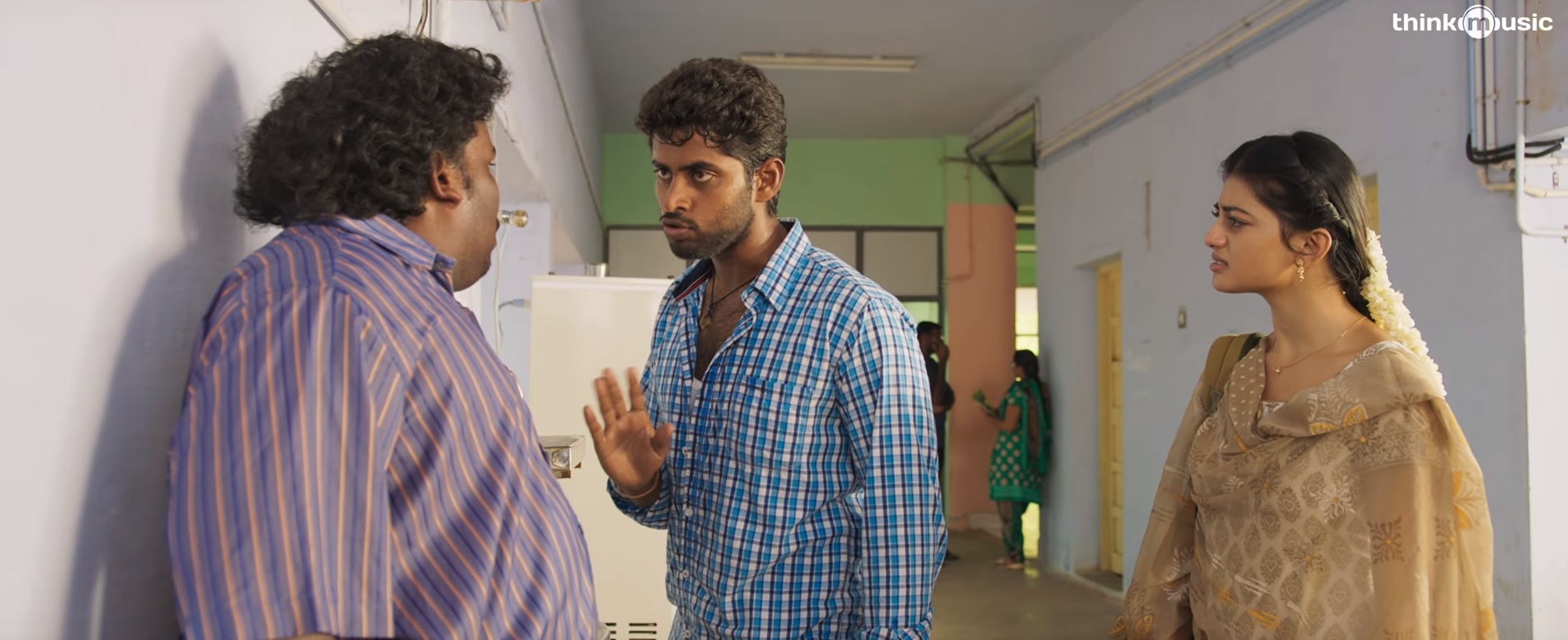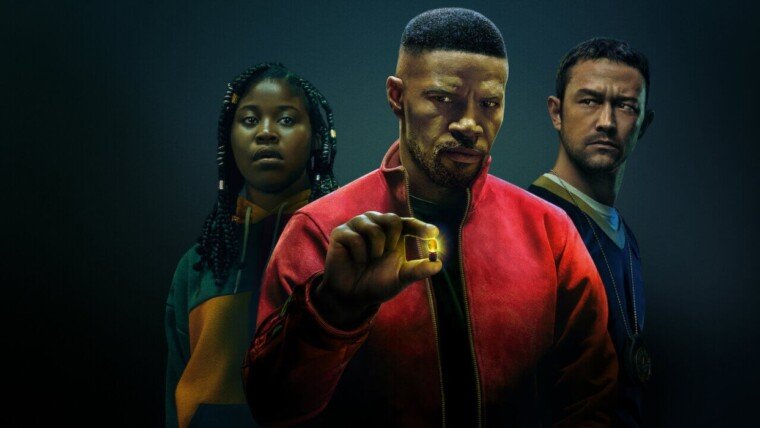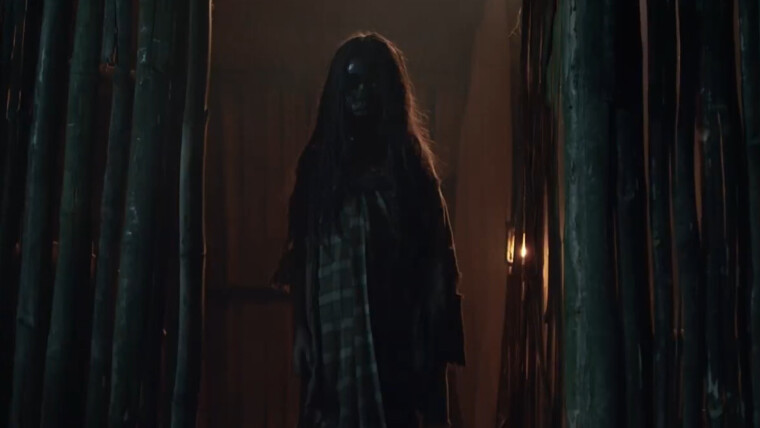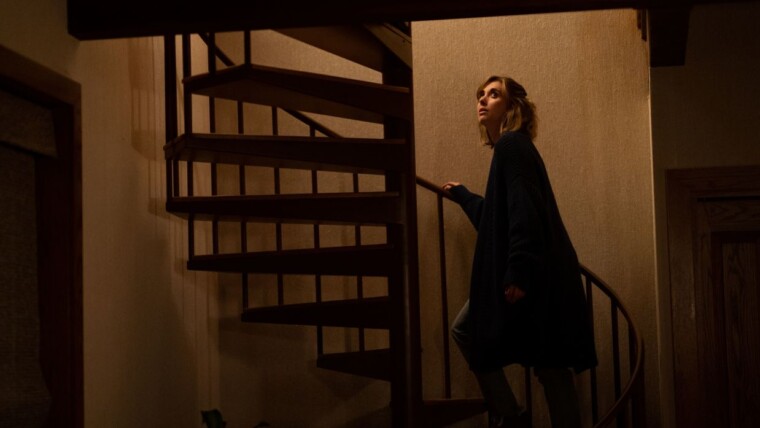“It is a matter of shame that even after fifty years of independence the obnoxious practice of untouchability, banned by the Constitution, is still in vogue in many towns and villages. Tamil Nadu has witnessed some of the worst incidents of caste-related oppression.” – S. Viswanathan
There have been no words bolder and truer in cinema this year (so far) than the ones that fade onto the pitch black screen right before Pariyerum Perumal opens: Caste and religion are against humanity. Pa. Ranjith (the director of Kaala and Kabali, the producer of this film) has always been open about his non-religious beliefs. He’s an atheist (and in case you’re wondering, so am I). He’s also admitted that he only started getting into cinema when he realised it can be used as a medium to dispense political messages. Perhaps that’s why his films feel overt and sometimes a little too on the nose.
This is especially true when it comes to his most recent Rajinikanth vehicle, Kaala (a film, that I have come to very much enjoy), a film about caste crafted to reach the widest possible audience. In a way, it’s like many of the pictures Aamir Khan has been starring in in recent years — Three Idiots, PK, Dangal, Secret Superstar. The messages in these films are spelt out loud and clear, infused with glitz and glamour and mainstream Indian cinema masala-ness. In the case of Kaala, we have characters who say “Why do you always wear black? What a dirty colour!” and “Just because he’s wearing white, doesn’t make him good.” You know, just in case, certain portions of the audience can’t make the connection just by looking at the colours (the lower caste hero wears black, the upper-class villain wears white). It’s also the kind of movie where you stand up and whistle your lungs empty when the hero singlehandedly takes down the villain and his swarm of thugs. This isn’t a criticism, but a mere observation.
Mari Selvaraj’s Pariyerum Perumal, on the other hand, is a truly personal letter. The kind where certain words are smudged due to the tears trickling down the writer’s cheek and onto the paper as he pours his soul out. This is both an introspective and an interrogative film. A character study and a study of society. It is wonderfully penned (also by Mari Selvaraj) and masterfully helmed. Here, we don’t cheer for our protagonist to fight. We hate that he’s getting beaten up. We feel like strangling the villain, as hard as society is strangling Pari and the lower caste folk. But we also desperately hope that he doesn’t pummel anyone to death. That he fights simply by surviving. That he swims through the shark-infested waters known as the SYSTEM that’s rigged against him from top to bottom. That he becomes the man he sets out to be (in this case, it’s a lawyer). That way he would rise above the very system and the very people who once spat on him. It’s like the law college dean character says in the movie, “I’m from the lower caste too. The people who used to spit on me, now bend down and say ‘hello sir. Good morning sir.’ So, study!” Education is the key to liberation!
It makes perfect sense then that this film is mostly set in an educational institute — a law college. We follow Pariyerum Perumal (let’s just call him Pari from now on) who provides the emotional centre of the film. As he begins his college journey, he gets entangled in a tragic series of events. It isn’t his fault. He’s a good kid who just wants to mind his own business, to be a lawyer like Dr Ambedkar (India’s first law minister, a man who fought his damndest for the Dalit community). But the system keeps beating him down, repeatedly. One of his lecturers kicks him out of class for his inability to write and converse in English, a simple-minded lecturer who believes that “people like Pari” are all scum of the earth. An upper-class simpleton who thinks Pari simply managed to get a seat in this college because of the quota system. Little does he know that Pari is actually highly intelligent — one who scored excellent marks in highschool –, he’s just not good in English (very eager to learn, though).

But that teacher is the least of his problems. The system continues to trample all over him. He befriends an upper caste girl named Jo, like his favourite actress Jyotika (he’s watched Kushi 19 times) who’s also upper class (she’s wealthy and speaks English). She loves him dearly. She invites him to her sister’s wedding; she doesn’t invite anyone else from college. But when he shows up at the wedding, he’s taken to a room by the girl’s dad and then beaten to a pulp and urinated on by her relatives, in a sequence that’s terribly uncomfortable to behold. So why does the system keep fucking him up? Why do these men hate him? Simply because he’s of a lower caste — an ‘untouchable.’ Caste and religion are against humanity!
In a recent interview with Indian film critic Baradwaj Rangan, music composer Santhosh Narayanan said he “moved to the next level of social consciousness” when he made Karuppi (the film’s opening number). It’s not difficult to see why. The opening few minutes of Pariyerum Perumal that leads into Santhosh Narayanan’s song grabbed me by the collar and punched my gut so hard, I could feel warm blood moving up my dry throat. Pari and his friends are hanging out in a waterhole with their dogs. (Note: dogs are to the Dalits what Direwolves are to the Starks in Game of Thrones.) When a bunch of uppercase youths approach, he urges his friends to leave. He doesn’t want trouble. But as they’re walking away, Pari realises that his dog, Karuppi isn’t in sight. He yells for her, but still, she doesn’t show up. He keeps calling for her as our stomach begins to squirm. What follows — the brutal murder of Karuppi — is a sequence of events so cruel, so terrifying, it choked the air out of the theatre. I was almost shaking in anger. The coldness in the cinema hall got colder. It is that type of film.
And then comes Santhosh Narayanan’s spine-chilling track. Listening to the first couple of bars, the voice that blares through the speakers feels odd, almost like it’s being belted out by someone who doesn’t know how to sing (as it turns out it’s sung by Santhosh Narayanan himself, who’s known for his composing, not his voice). But as it continues to roar, the rawness, crassness and earnestness of the song moved me in ways no song in recent memory has done. It reminded me of the classic N.W.A tracks that felt more like battle cries than conventional tunes. I listened to the song again on Spotify on the way back from the cinema. Tears started filling my eyes and I had to hit pause. It is that type of song. There is no doubt in my mind, that while I will probably listen to many of his other works more (especially the catchy tracks in his Kaala album), this is hands down Santhosh Narayanan’s best work to date, at least from an emotional standpoint and the way it complements the film. Later in the film, another song titled Naan Yaar? (who am I?) sent shivers down my spine. Mari Selvaraj’s surreal vision for the track that sees Pari as the voice of the voiceless, accompanied by the track itself, will be ingrained in your memory for the foreseeable future
I also love how Mari Selvaraj stages the romantic sequences. Here he combines the purity (and perhaps cliches) of the typical romantic montage sequences found in your usual masala flick and juxtaposes it against the violence stirred by casteists. As Pari and Jo walk around college, sitting, chatting, eating, in the background we see fights, we see upper caste students bullying lower caste students. It results in a thoroughly un-cliche sequence.

In another uncomfortable scene, Pari is shoved into the ladies toilet. We see him on the ground squealing as the girls scream and yell. You understand his fear and his shame. You’re angry for him. Kathir (whom you may know as Puli from Vikram Vedha) delivers a performance that will have the industry talking for months and months to come. His physical performance will get him award season buzz, but it’s when he’s not throwing tables (a well-earned outburst) does he truly show you what a phenomenal talent he is. There is a pain in his eyes that he carries with him throughout the film, even during the seemingly happy moments. Pain that he masks with a smile on his face.
In this character-driven drama, Pari is the oppressed. On the opposite end of the spectrum is an upper caste old man, a man who kills lower caste people in the name of god. The oppressor! But unlike the larger than life villains in a mass-masala film, the villain here is very much a real person, a grounded representation of racist, religionist and casteist folk. He’s not the kind of villain that we find cool (he’s not Mark Anthony from Baashha), rather he’s the kind that strikes genuine fear in you, even as you’re sitting amongst an audience on the other side of the screen. A hitman so prideful, his principle is ‘if he fails to kill his target, he’ll take his own life.’ You clamour for his death!
What I love about the film are its complex characters. Take Jo’s father for instance (played superbly by Marimuthu). During the (aforementioned) wedding, he brings Pari to a room and tells him, “if you don’t leave my daughter alone, they will not only kill you, but kill her too.” When his relatives barge into the room and dish our their beatings, he tries to stop them. But he isn’t exactly a good guy. He too, doesn’t want his daughter hanging around with lower caste folk like Pari. But he isn’t the embodiment of evil like the old hitman. He’s conflicted, constantly wearing a look of shame and guilt on his face. A look that suggests that he too, doesn’t fully understand why he’s supposed to hate Pari. The climactic sequence in which Pari jumps on the hood of his car, throws a brick at his windshield and talks to him through the hole speaks volumes about Mari Selvaraj’s vision as a director (full credit to cinematographer Sridhar, who captures the scene brilliantly). Why is it staged that way? I wondered. Could it be because there’s finally a crack in the metaphorical glass too and a proper conversation can finally take place between the two individuals? A step in the right direction on a road that looks thousands of miles long.

Most surprising of all for me is Yogi Babu’s character, Pari’s always failing and retaining classmate. I was initially worried about the inclusion of Yogi Babu in this film. How would Yogi Babu’s comedic antics fit here? As it turns out, I needn’t have worried. Mari Selvaraj has the tone of the movie in complete control. The comedy is only situational — when it comes it’s hilarious. But more importantly, Yogi Babu isn’t just Yogi Babu, he’s a fully realised character. An upper caste (but not upper class) guy who always has Pari’s back. In one scene, he slaps Pari when Pari nonchalantly says, “Arent’ they your people?” “WTF? Am I the kinda guy who gives a damn about castes?” Yogi Babu’s character retorts. I love that Mari Selvaraj shows us that not all upper caste people are vile bigots. This is important. It is important to know that the biggest villain isn’t necessarily upper caste folk, but the very concept of caste and religion in and of itself.
Even the lecturers (and dean) have varying personalities. One the one hand, we have a lecturer whose very belief system dictates that people from the lower caste are all thugs, destined to work in the gutters. One the other hand, there’s a lecturer who genuinely cares for Pari, who vouches for him when it seems like the whole world is throwing lightning bolts at him. And then the most textured of these figures, the dean. When we first meet him, we think he’s rooting for Pari to fail. When he scolds Pari and throws his files on the floor, we think he’s looking down on Pari. Later we learn that he’s of the lower caste too and that his frustrations stem from his worry that Pari might actually fail. In one scene, he tells the caring lecturer, “Don’t worry. Let him fight! Instead of committing suicide (like many lower caste people do), it’s better to die fighting for your identity.”

There are things that don’t work in the film. Like Anandhi’s character Jo. There is a way to write characters who are naive without them coming off as completely oblivious and “cutesy.” Her character is an interesting concept — she doesn’t care about caste, nor does she seem to know about her dad’s and relatives’ bigoted beliefs. However, the writing is a little too unbelievable. At times, she’s so blinded by the goings on that it made me wonder if she’s an eleven-year-old (this is not Anandhi’s fault, who delivers a fine performance). At one point, she breaks her bangles in anger in a scene that just seems rather odd and awkward. There’s also the scene where Pari comes to class drunk. A scene that doesn’t feel organic, as if it’s just a plot device to get to the scene where Pari’s father and the dean meet.
That said, Pariyerum Perumal is such a powerful cinematic experience. It is an uncomfortably raw film, written and directed magnificently. (Mari Selvaraj also finds a way to organically include commentary on the LGBT community, a community that despite being a part of ancient Hindu culture, is still ostracised to this day.) The action sequences are grounded and filled with tension. And the final shot is nothing if not genius. The camera zooms in, as two tea glasses fill the frame. One is a lighter milk tea (drank by Marimuthu’s character), the other is the darker plain tea (drank by Pari). The two gentlemen just had a conversation. As the camera zooms in on the glasses, we see that the milk tea is at a slightly higher level than the plain tea. The windshield may have been broken, a first step may have been taken, but the status quo still remains… at least for now. There is a lot of work yet to be done.
If you’d like to talk movies with me you can hit me up on Twitter here: @dashtalksmovies







